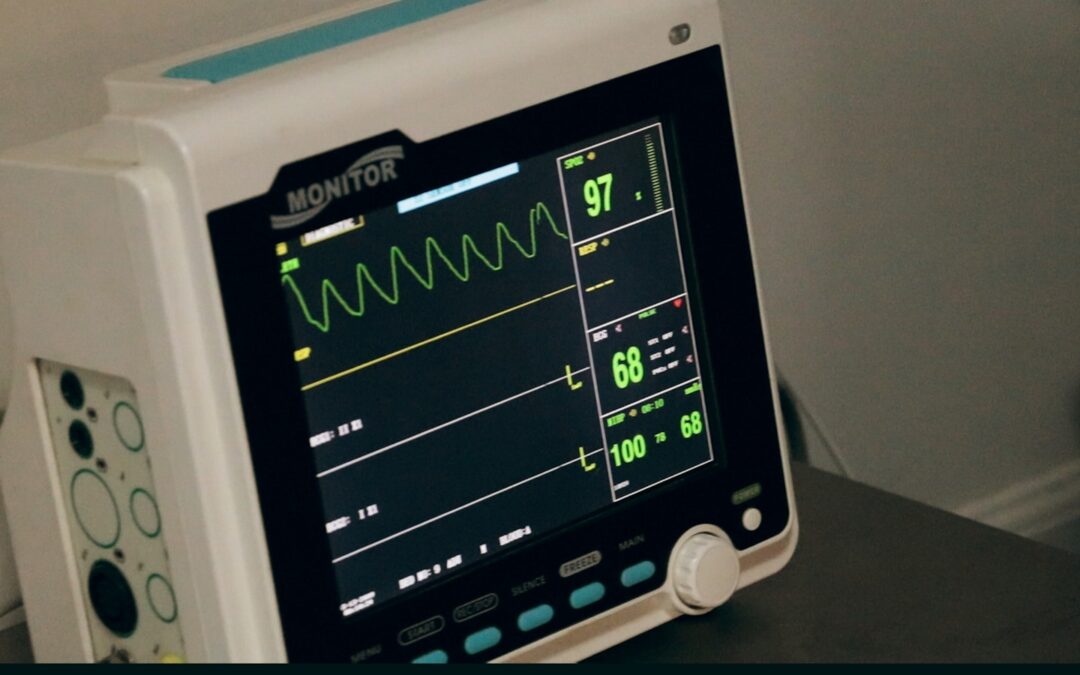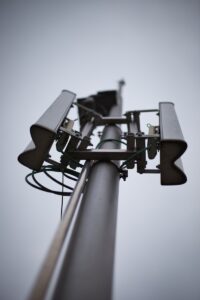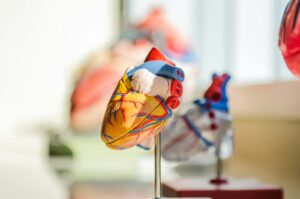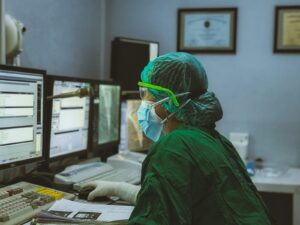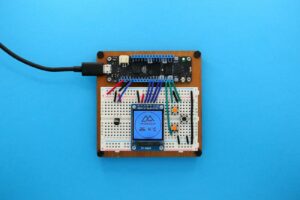Key Takeaways for Healthcare Providers
The Importance of Customization in IoT Platforms for Healthcare
Implementing an IoT platform for patient monitoring has become increasingly vital in modern healthcare settings, offering real-time data that can significantly improve patient outcomes. One of the most critical lessons learned from a healthcare provider’s successful implementation of such a platform is the importance of customization. In the dynamic healthcare environments of Saudi Arabia and the UAE, where medical facilities are continually advancing, the ability to tailor IoT platforms to specific patient needs and operational requirements is paramount. Customization ensures that the platform integrates seamlessly with existing healthcare systems, supporting a wide range of monitoring devices and data analytics tools, which are essential for providing accurate and timely patient care.
For example, in a hospital setting in Riyadh, the customization of an IoT platform enabled the integration of advanced AI-driven diagnostics tools that enhanced the monitoring of chronic conditions. This integration allowed healthcare professionals to receive alerts on critical patient data, such as heart rate variability or glucose levels, in real-time. The platform’s ability to adapt to these specific needs made it a valuable asset, improving the speed and accuracy of diagnoses and reducing the risk of human error. Such flexibility is essential in a region like the Middle East, where diverse healthcare needs demand adaptable technological solutions.
Moreover, the ability to customize an IoT platform to comply with local regulations and data privacy laws is crucial. In the UAE, where data protection is a significant concern, an IoT platform must be configured to ensure that patient data is handled in compliance with national standards. Customization allows healthcare providers to build these requirements directly into the platform, avoiding potential legal issues and fostering greater trust among patients.
Scalability and Integration as Drivers of Success
The successful implementation of an IoT platform for patient monitoring also highlights the importance of scalability and integration capabilities. As healthcare providers in cities like Dubai and Riyadh continue to expand their services, the ability of an IoT platform to scale and integrate with new technologies becomes increasingly important. The scalability of an IoT platform allows it to grow alongside the healthcare provider, accommodating an increasing number of devices, patients, and data without compromising performance.
In one notable case, a healthcare provider in Dubai implemented an IoT platform that seamlessly integrated with their existing electronic health record (EHR) systems. This integration enabled a unified view of patient data, from real-time monitoring to historical health records, providing a comprehensive picture of each patient’s health. This capability was particularly beneficial in managing chronic diseases, where continuous monitoring and historical data are critical for effective treatment. The platform’s ability to scale ensured that as the hospital added more IoT devices and expanded its patient monitoring services, the system continued to function efficiently without any loss in data integrity or performance.
Furthermore, integration with emerging technologies like AI and Blockchain is another key lesson from successful IoT implementations. In Saudi Arabia, a healthcare provider integrated AI algorithms into their IoT platform to predict patient health trends and recommend proactive interventions. By incorporating Blockchain, the provider ensured that patient data was securely stored and easily auditable, enhancing both security and trust. The success of these integrations underscores the need for healthcare IoT platforms to be not only scalable but also capable of incorporating the latest technological advancements.
Building a Collaborative Ecosystem for IoT Implementation
Another critical lesson from the successful deployment of an IoT platform for patient monitoring is the importance of building a collaborative ecosystem. The implementation of IoT in healthcare is a complex process that requires the collaboration of various stakeholders, including healthcare providers, technology vendors, regulatory bodies, and patients themselves. In the UAE, a healthcare provider’s success in deploying an IoT platform was largely attributed to the strong partnerships they established with technology vendors and regulatory authorities. These partnerships ensured that the platform met all necessary technical and regulatory requirements, facilitating a smoother implementation process.
In addition to external collaboration, internal collaboration within the healthcare organization is equally important. For example, in a leading hospital in Riyadh, the successful implementation of an IoT platform was driven by close cooperation between IT professionals, healthcare providers, and administrative staff. This collaborative approach ensured that the platform was not only technically sound but also aligned with the clinical needs and workflows of the healthcare providers. This alignment is crucial in ensuring that the platform delivers real value in terms of patient care and operational efficiency.
Moreover, involving patients in the implementation process can lead to better outcomes. By gathering feedback from patients and incorporating their needs into the design of the IoT platform, healthcare providers can create a more user-friendly and effective system. In Dubai, a healthcare provider included patients in the testing phase of their IoT platform, which led to the identification and resolution of potential usability issues before the full deployment. This patient-centered approach not only improved the functionality of the platform but also enhanced patient satisfaction and engagement.
Ensuring Long-term Success with IoT Platforms in Healthcare
The Role of Continuous Training and Support
Ensuring the long-term success of an IoT platform for patient monitoring requires ongoing training and support for healthcare professionals. As technology evolves, continuous training programs are essential to keep healthcare staff up-to-date with the latest features and best practices. In the fast-paced environments of Riyadh and Dubai, where healthcare facilities are constantly upgrading their technologies, regular training sessions help ensure that staff are proficient in using the IoT platform to its fullest potential.
For instance, a hospital in Saudi Arabia implemented a series of training workshops to help their staff understand and effectively use the newly implemented IoT platform. These workshops covered everything from basic operations to advanced features, ensuring that all staff members, regardless of their technical background, were comfortable with the new system. Continuous training also plays a crucial role in adapting to updates and new features that may be introduced as the IoT platform evolves. This ongoing education helps healthcare providers maintain a high standard of patient care while maximizing the benefits of their IoT investments.
In addition to training, ongoing technical support from the IoT platform provider is vital. Healthcare providers in Dubai, for example, benefited greatly from having a dedicated support team that was available to address any issues that arose during the implementation and beyond. This support ensured that any technical challenges were quickly resolved, minimizing downtime and ensuring that patient monitoring was not disrupted. The availability of such support is a key factor in the long-term success of an IoT platform in healthcare settings.
Continuous Monitoring and Improvement of the IoT Platform
The implementation of an IoT platform for patient monitoring is not a one-time project but a continuous process that requires ongoing monitoring and improvement. Regular assessments of the platform’s performance help identify areas for enhancement, ensuring that the system remains effective and reliable. In the healthcare industry, where patient safety is paramount, continuous monitoring of the IoT platform is essential to detect and address any issues that could impact the quality of care.
In Riyadh, a leading healthcare provider set up a dedicated team to monitor the performance of their IoT platform on an ongoing basis. This team was responsible for analyzing data, identifying trends, and making recommendations for improvements. This proactive approach allowed the provider to make timely adjustments, such as optimizing data processing algorithms or upgrading hardware components, to ensure that the platform continued to meet the high standards required in a healthcare setting. Regular monitoring also helps in assessing the platform’s scalability, ensuring that it can handle increased data loads as the number of connected devices grows.
Moreover, continuous improvement of the IoT platform involves staying abreast of technological advancements and integrating new features as they become available. In Dubai, a healthcare provider successfully implemented updates to their IoT platform that incorporated AI-driven predictive analytics. These updates enhanced the platform’s ability to predict patient health outcomes and suggest preventive measures, further improving the quality of care. By committing to continuous improvement, healthcare providers can ensure that their IoT platforms remain at the forefront of technological innovation, providing the best possible care to their patients.
Conclusion: The Strategic Impact of IoT in Healthcare
The successful implementation of an IoT platform for patient monitoring offers valuable lessons for healthcare providers worldwide. Customization, scalability, collaboration, and continuous improvement are key factors that contribute to the success of these platforms in healthcare settings. For healthcare providers in regions like Saudi Arabia and the UAE, where technological innovation is a key driver of growth, these lessons are particularly relevant. By focusing on these critical areas, healthcare providers can ensure that their IoT platforms not only enhance patient care but also support their long-term strategic goals, ultimately leading to better health outcomes and improved operational efficiency.
—
#IoTPlatformForPatientMonitoring #HealthcareIoT #PatientMonitoringSuccess #AIInHealthcare #BlockchainInHealthcare #UAEHealthcareInnovation #SaudiArabiaHealthcare #RiyadhMedicalAdvancements #DubaiSmartHealthcare #LeadershipInHealthcareTechnology

